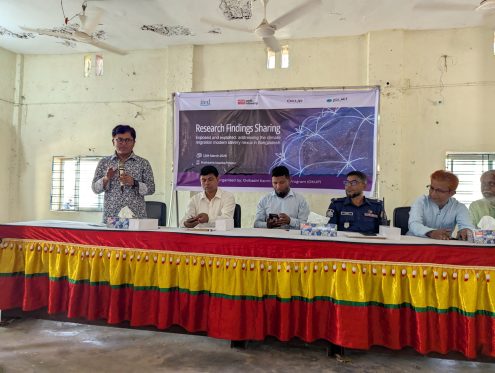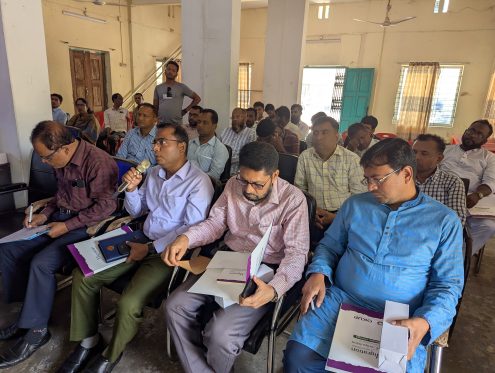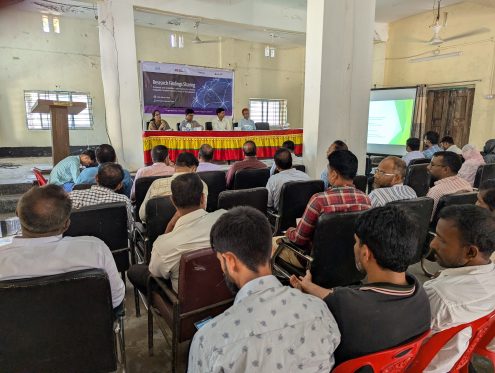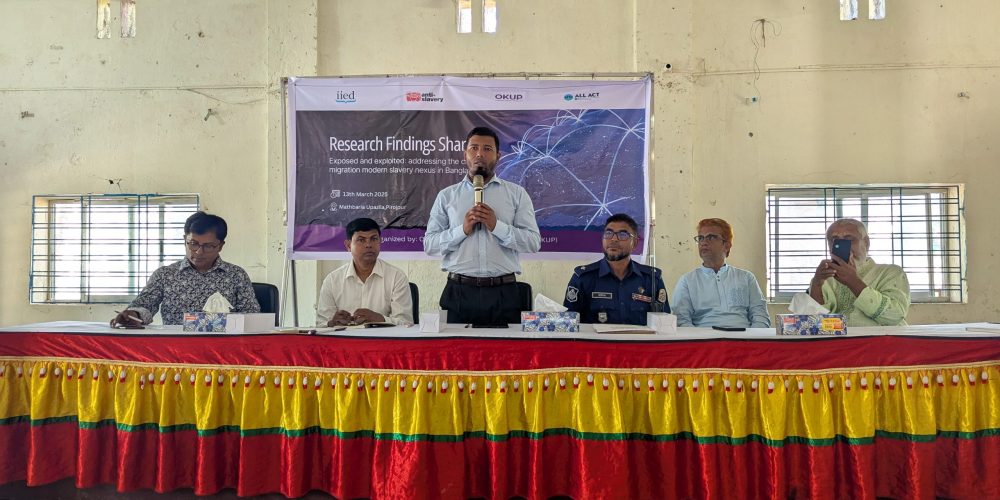In a demonstration of community-centered research and advocacy, Ovibashi Karmi Unnayan Program (OKUP) organized local-level research validation program in Mathbaria Upazila of Pirojpur. The event was part of OKUP’s continuing efforts to address the deepening crises of climate change-induced migration, economic vulnerability, and modern slavery in Bangladesh’s most climate-affected regions.



The event brought together 46 participants—including 10 research respondents, as well as key government officials, local NGO representatives, and community leaders. Notably, the Upazila Nirbahi Officer (UNO) of Mathbaria attended as the Chief Guest, emphasizing the importance of local engagement in shaping climate and migration policies. He mentioned that,
“It’s commendable that OKUP is not only conducting research in vulnerable areas like Pirojpur, but also bringing the findings back to the people. This is a region where I receive thousands of cases related to unsafe migration every year. Research like this can play a crucial role in raising awareness and preventing exploitation and modern slavery.”
Ground Realities from the Frontlines
The validation session sparked important discussions around the real-life impacts of climate change on people’s livelihoods and migration decisions. The Livestock Officer highlighted how rising salinity is altering natural ecosystems:
“The Hilsa fish, once abundant here, have changed their migratory routes due to salinity.
We have 1,075 registered fishermen, but their income has drastically fallen. Already, 125 have migrated abroad in search of survival.”
The session also drew attention to the systemic inadequacies in current social protection mechanisms. Mr. Firoz Alam, the Disability Affairs Officer, reflected on the limited support available to local fishermen:
“Around 500 fishermen in the area have official cards and receive a monthly allowance—but only for four months a year. That’s far from enough to help them adapt or survive.
There’s a huge gap in the system. If OKUP includes this recommendation in the research, it could help influence meaningful policy change.”
Why Local Validation Matters
Unlike most research efforts that remain confined to policy circles, OKUP believes that communities must be part of the conversation, not just as data sources, but as knowledge holders and solution contributors. This validation event ensured that the people whose stories shaped the research had a chance to verify, reflect, and add to the findings.
It also created a rare space for constructive dialogue between citizens and officials, fostering shared ownership of the problems and the pathways forward.
A Step Toward Just and Inclusive Adaptation
Pirojpur, like many coastal districts of Bangladesh, stands at the frontline of the climate crisis. Rising salinity, disappearing livelihoods, and the absence of adequate support systems are driving migration not as a choice, but as a last resort.
By anchoring research in local voices and making validation a participatory process, OKUP continues to champion a rights-based, locally led adaptation model one that acknowledges community resilience and demands structural transformation.


